Opel Astra OPC versus Renault Megane RS is the ultimate example of challenger attacking, champion defending.
But the French know, arrogantly but correctly, that the Megane RS has long been the benchmark sub-$50,000 hot hatch – when the model was upgraded from RS250 to RS265 last year, the press release was titled "the best just got better".
Truth in marketing? In this case, yes; the Renault Megane RS has previously fought off the Ford Focus ST and Volkswagen Golf GTI in our own comparison test. Now it's the turn of a third German-built contender, the also-three-door Opel Astra OPC.
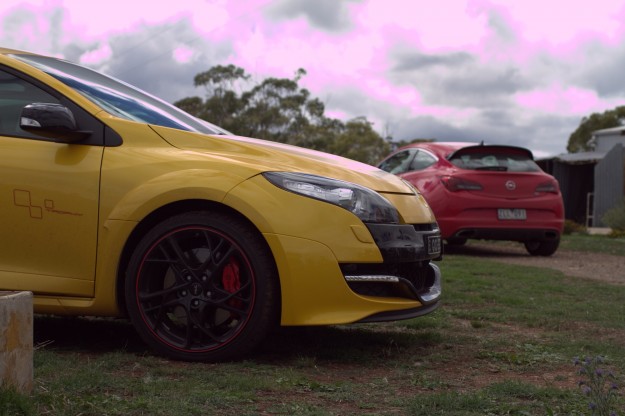
Both the Opel Astra OPC and Renault Megane RS utilise 2.0-litre turbocharged four-cylinder engines. They each exclusively offer a six-speed manual transmission, and power the front wheels, with a proper mechanical limited-slip differential harnessing the after-effects of a heavy throttle.
The Astra OPC gets 206kW of power at 5300rpm, and 400Nm of torque from 2400-4800rpm; the Megane RS can't quite counter that, producing 195kW at 5500rpm and 360Nm at 3000rpm. But the Opel weighs 1550kg, a hefty 176kg more than the Renault, so both actually claim the same 6.0-second 0-100km/h time.
As far as sparring partners go, the Renault hasn't been more evenly matched since the ballistic, but far-pricier Ford Focus RS sold out.
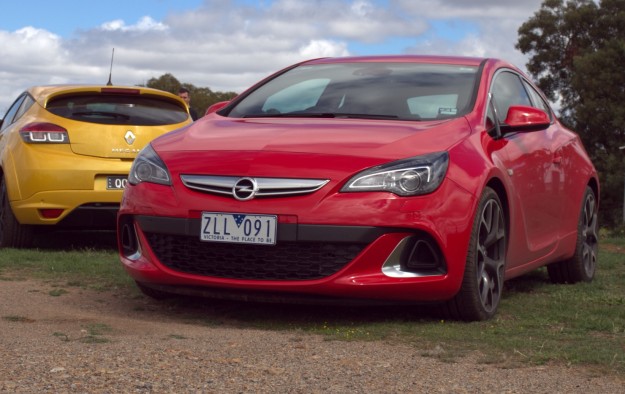
The Opel Astra OPC is available as a single model for $42,990, plus $1K for the 20-inch alloy wheels featured here. The Renault Megane RS265, conversely, is available as a three-tier range, or four if you count the limited-edition 8:08 model seen here, a name which references its front-drive production model benchmark eight minute, eight second lap of the Nurburgring.
But while the Megane RS265 Cup starts at $42,640, even the mid-spec $47,140 Trophy misses the full leather trim, electric-adjust seats, bi-xenon headlights, adaptive dampers and satellite navigation. The $49,990 8:08 at least ticks off the bi-xenons and leather but you'll need to buy the $51,640 Trophy+ to get the power seats and nav.
First round value win to the German, then.
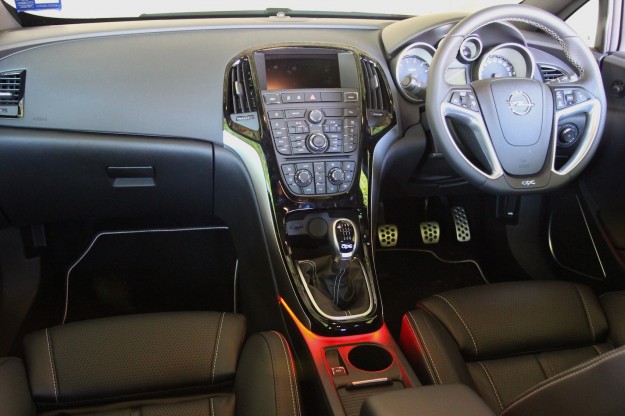
Neither five-seat, three-door hatch offers a particular practicality benefit over the other – unlike the five-door Focus ST and Golf GTI – so a decision on which body is best comes purely down to styling. Perhaps we like the Astra more from the front, but the Megane from the rear; it really is that close.
Both cabins also have their plusses and minuses. The Opel Astra OPC (above) has higher-grade cabin plastics, but awful ergonomics, with the centre console a poorly labelled button fest.
The Renault Megane RS (below) is less confused – once accustomed to the simplicity of the stereo controls hidden on a massive 'block' behind the steering wheel. But needing to press two small, non-labelled buttons on it to access the throttle settings and G-meter on the RS Monitor is a similar ergonomic black mark. The interior doesn't feel high quality, although its simplicity at least extends to consistently matched soft touch plastics and basic climate controls.
Each car's front seats provide a hint about the way they drive. The Opel Astra OPC has luscious padding, high-quality leather trim and wonderful side bolstering; the Recaro buckets in the Renault Megane RS are essentially a race seat, hard and thin, but ultimately hugging the body tighter.
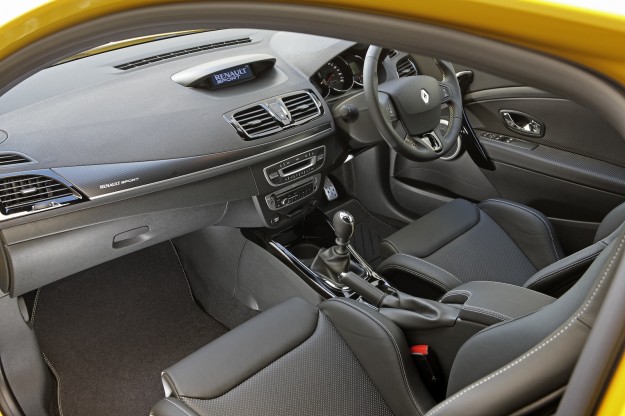
Standard adaptive dampers – with normal, firmer Sport, and ultra-firm OPC models – aren't a gimmick in the Opel Astra OPC. In normal mode, this car rides astoundingly well, and not just for a car wearing aggressive 20-inch rims. To drive in urban environs or on a country road, the OPC is comfortable and composed, backing its fine noise suppression.
The Renault Megane RS, by contrast, is hard … just like the seats. Big road irregularities thump through the cabin. Crucially, however, they 'thump' but never crash and smash. The Megane RS proves that sophisticated suspension can deliver sports-car firmness with a thin veil of comfort and urban civility. Yes, the layer is thin, but it's still there, and it's just-enough acceptable. But after a few big hits the phrase once used by a motoring journo elder statesman, when describing the ride of a Porsche 911 GT3, comes to mind: "if I want to punish my kidneys, I'll do so with a bottle of Penfolds".
If you spend most of your days clinging to the inner city and suburbs like barnacles to a wharf, buy the Opel Astra OPC.
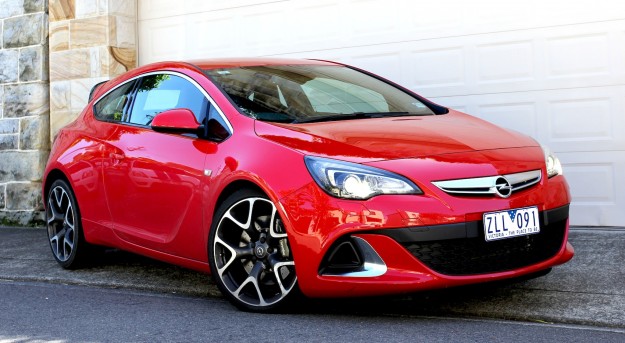
Actually, hold up for a moment. The Astra and Megane may share the same performance times on paper, the same capacity, and the same front-wheel-drive layout, but as with the ride quality, their drivetrains are distinct.
The Megane RS engine is more linear, more effervescent, and teams with the most wonderful-to-shift short-throw six-speed manual transmission. The Astra OPC is by contrast laggy, then boosty, and backed by a manual that doesn't like to be rushed and has a long and slightly rubbery throw.
For urban driveability, the Renault has the Opel on the floor; it's so much less frustrating. But on a flowing country road, the Astra hammers harder in its boosty mid-range, feeling like a Subaru WRX STI the way it whooshes, then reels in scenery after a throttle stomp in third gear.
The Megane plays a jetpack 'vwoorrrp' through its mid-range, where the Astra sounds like that cyclone you didn't see approaching in your rear-view mirror…
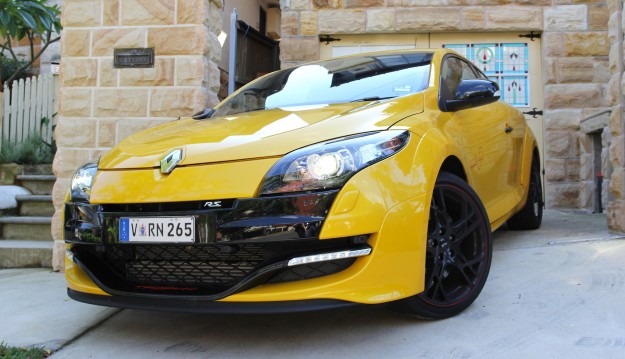
Odd that the Opel Astra OPC plays such an all-rounder card with its comfortable ride quality and seats, yet the engine is so narrow focused.
Whether the road coils tight around a mountain, or flows through valleys, the Renault Megane RS maintains its supercar-rivalling focus. Throw it into a corner at speed, feel the Bridgestones teeter on the edge of grip, then plant the throttle and feel the front limited-slip differential pull your line tight. Conversely, run deep into a corner on the brake, press a little harder, and feel the rear lighten, shift, and help point the nose.
All the while the stability control sleeps, acknowledging that the chassis has such inherent active safety that it only needs to keep an ear out for an idiot turning into a corner without first braking and getting weight over the nose.
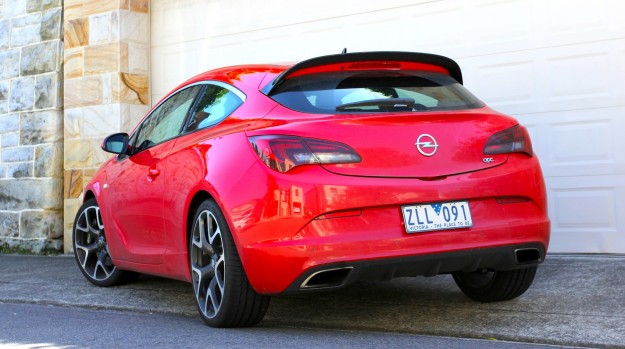
The Opel Astra OPC is a brilliant-handling hot hatch. It actually near-matches the Megane RS for poise and delicacy, being similarly grippy and adjustable, and working its front LSD hard. The expected 'but' that follows is mainly down to the steering, which is all-then-nothing transitioning from its sharp on-centre response to winding on lock. Like its engine, the Megane RS steering is more linear, more consistent, and more firmly weighted – it is a truly superb system.
The Renault also suffers slightly less from torque steer out of bends, although both even share a similar front suspension set-up that separates the steering hub from the strut – called HiPerStrut by Opel and the slightly less catchy "independent steering axis front suspension" by Renault.
Together with its perfect manual shift, perfectly spaced pedals, perfect driving position and perfect power distribution, the Renault Megane RS takes the lead for outright dynamics. It remains the one to beat.
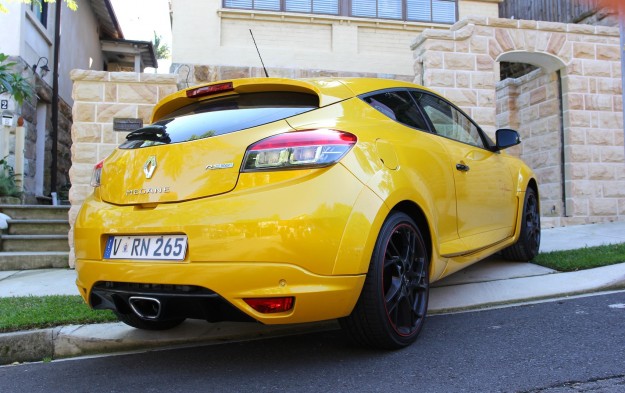
You can't criticise the Renault Megane RS265 for its clear, unapologetic focus because it delivers the dynamic ability of cars costing twice or three times the price.
Equally, however, you can understand why someone trading up from a Golf GTI would find a great blend of comfort and excitement in the excellent Opel Astra OPC. If the German engineers could tighten the transmission and cut turbo lag, then the Frenchies at Renaultsport might re-consider their … let's call it 'confidence' in their product.
If you want the hottest of hot hatches, the status quo remains.
Opel Astra OPC
Price:?$42,990
Engine:?2.0-litre four-cylinder turbo petrol
Power:?206kW at 5300rpm
Torque:?400Nm at 2400-4800rpm
Transmission:?Six-speed manual
0-100km/h:?6.0 seconds
Fuel consumption:?8.1L/100km claimed
CO2?emissions:?189g/km
Renault Megane RS265 8:08
Price:?$49,990
Engine:?2.0-litre four-cylinder turbo petrol
Power:?195kW at 5500rpm
Torque:?360Nm at 3000rpm
Transmission:?Six-speed manual
0-100km/h:?6.0 seconds
Fuel consumption:?8.2L/100km claimed
CO2?emissions:?190g/km





